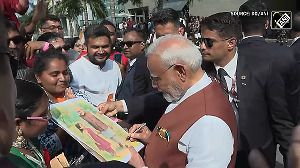While India 's financial markets have shown some resilience to the credit crunch emanating from the US, they still face problems of their own, says Deepak Lalwani, Director- India at Astaire & Partners.
"The Indian economy is clearly slowing but rising interest rates, high inflation not yet seen as peaking and a depreciating currency makes it impossible to cut interest rates to stimulate demand," he says.
"Furthermore, domestic political woes and possible future tensions with Pakistan following the political vacuum there have also dented risk appetite among overseas investors."
Mr Lalwani says foreign institutional investors, who bought a record $17bn of Indian equities last year, have reversed the trend by selling $7bn so far in 2008.
He points out that bear markets in India over the last 17 years - since markets were liberalised in 1991 - have lasted on average 15 months.
The bottom usually comes when the price/earnings ratio touches 10 times, which was last seen in May 2003.
"This would equate - barring earnings downgrades which are possible with second-quarter results due in October - to roughly 10,000 on the BSE Sensex index. The index currently stands at just above 14,000 and trades on a P/E of 14 times - below the 15-year average of about 16 times.
"Valuations have improved from early 2008 but are not yet compelling. This is still a market for nimble traders only."






